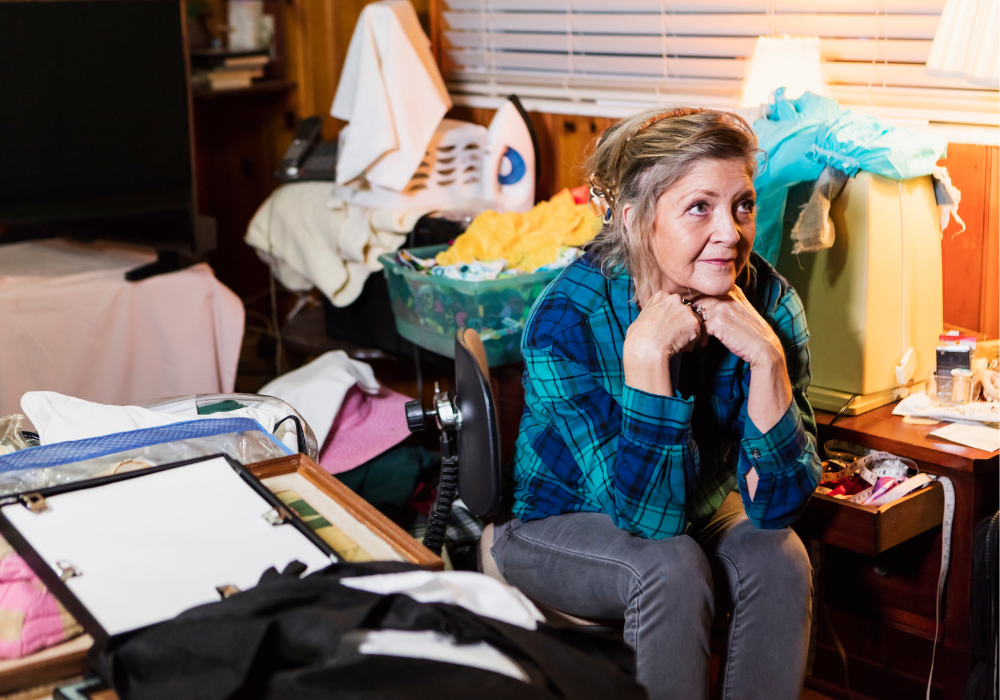
The things you own might be quietly owning your peace and happiness.
You may not realize it, but your stress might be hiding in plain sight—in the closets you avoid, the drawers you can’t shut, and the shelves packed with things you barely notice anymore. Our relationship with possessions runs deep, often shaped by emotions, identity, and habit. But when stuff begins to take up more than just space—when it consumes time, energy, and mental bandwidth—it quietly fuels anxiety, guilt, and overwhelm. You don’t have to live like that. By rethinking your connection to material things, you can lighten your emotional load. Here are 10 ways to shift your mindset and reclaim peace.
1. Recognize that clutter equals delayed decisions.
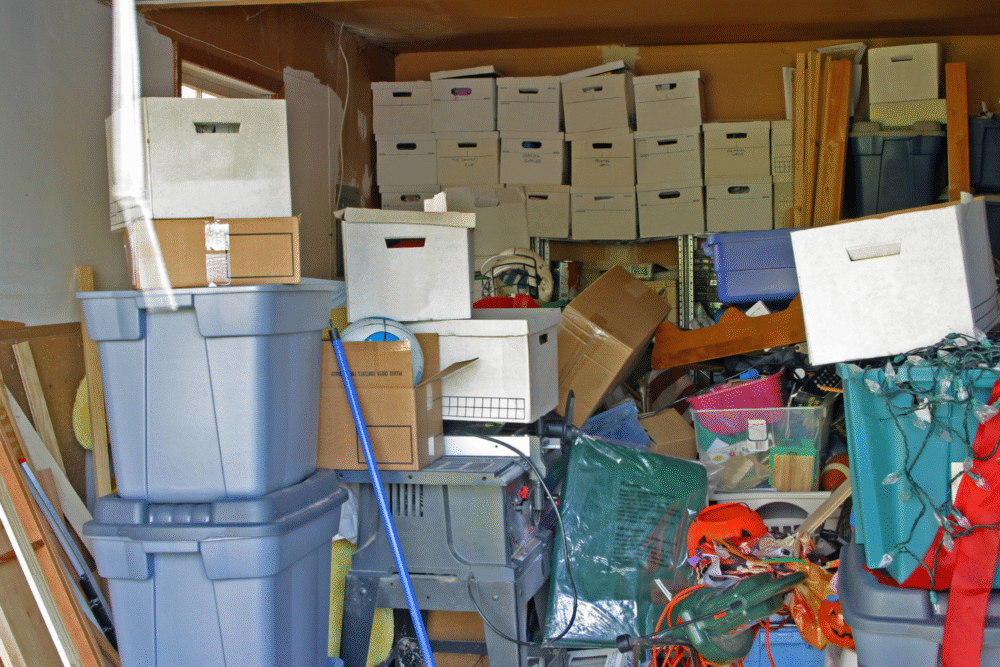
Every pile of papers, overflowing drawer, or forgotten tote in your garage represents a choice you haven’t made. Should you keep it? Donate it? Store it elsewhere? These postponed decisions weigh on your mind, even subconsciously, creating mental static that drains energy.
You may not consciously think about that stack of old magazines, but your brain registers the unresolved task. That’s why clutter feels heavy—it’s a reminder of all you haven’t tackled. Start small by making one decision a day. You’ll not only clear space—you’ll clear a mental backlog that’s been quietly stressing you out.
2. Stop keeping things out of guilt or obligation.
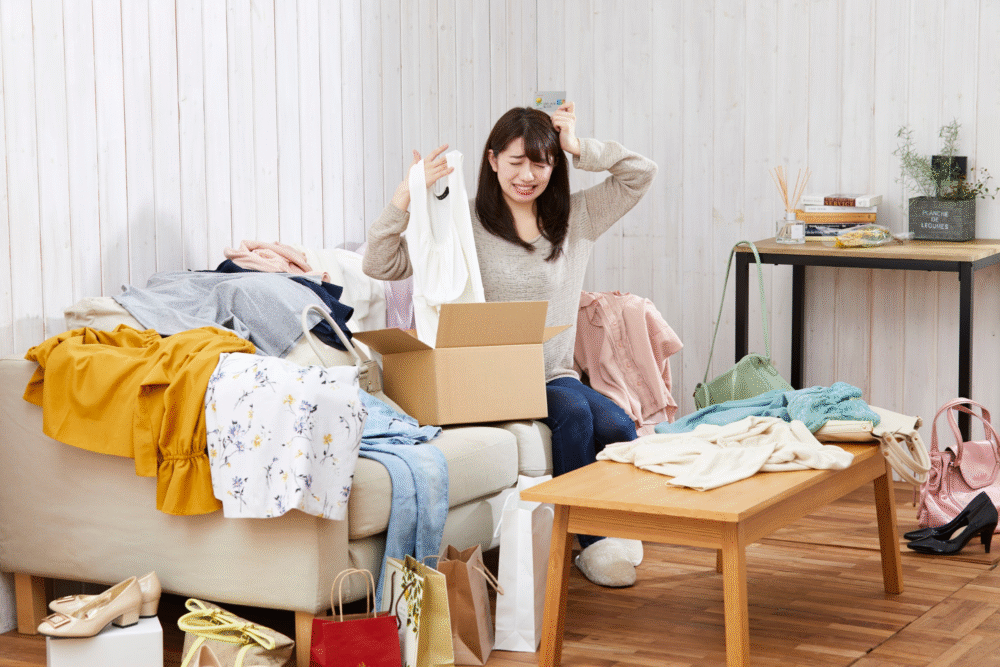
That sweater your aunt gave you? The dusty college textbook? The souvenir you hate but feel bad tossing? Guilt-based belongings are a major source of emotional clutter. Keeping something just because you feel obligated reinforces stress and resentment, not connection or gratitude.
Remind yourself that gifts fulfill their purpose when they’re given—not when they’re stored indefinitely. You don’t owe anyone storage space in your life. Letting go of these items doesn’t mean letting go of the memory or the person—it simply means valuing your peace more than an object you no longer need or want.
3. Reframe minimalism as freedom, not restriction.
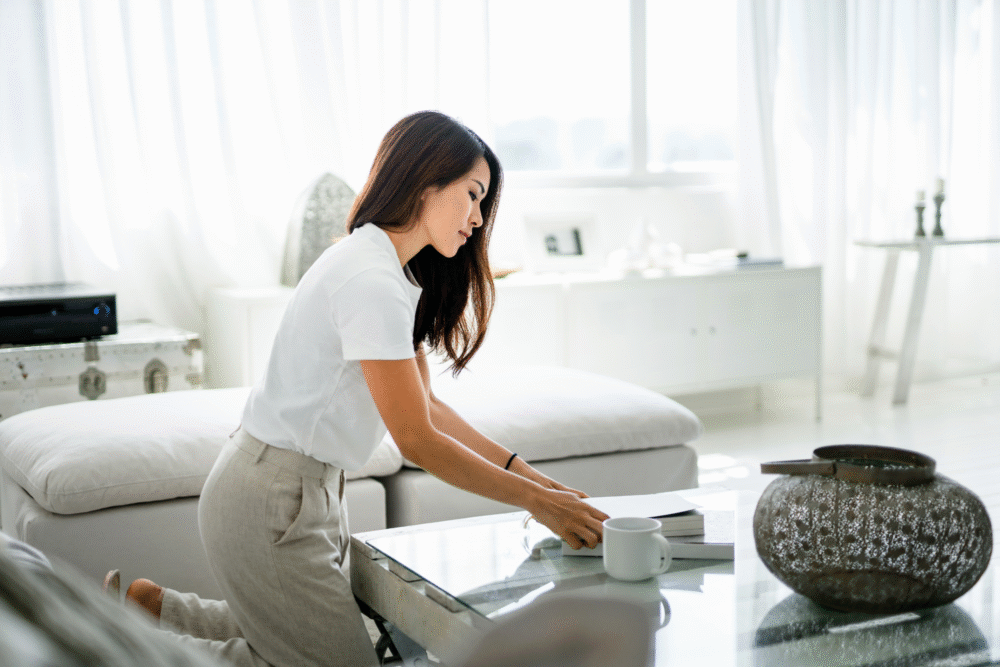
Many people resist decluttering because they associate it with loss. But having fewer things doesn’t mean you’re depriving yourself—it means you’re giving yourself room to breathe. Minimalism isn’t about owning the least—it’s about owning what serves you best. When you shed excess, you gain space, clarity, and control. It’s liberating to open a drawer and see only what you use and love.
Rethinking your relationship with stuff begins when you see simplicity as a gift, not a punishment. Let go of the fear of “not enough,” and you might discover how much more peaceful life can feel.
4. Understand that shopping can be emotional avoidance.

Retail therapy offers a quick hit of dopamine, but often masks deeper discomfort. We buy when we’re bored, sad, anxious, or trying to fill an emotional void. The stuff piles up—but the feelings remain. Recognizing the emotional triggers behind your spending is key to breaking the cycle.
Before you buy something new, pause and ask: What am I really trying to soothe? Is there another way to meet that need? Reframing shopping as a mindful choice instead of an emotional reflex helps you gain control over your environment—and your mental well-being.
5. Don’t confuse memories with the objects tied to them.
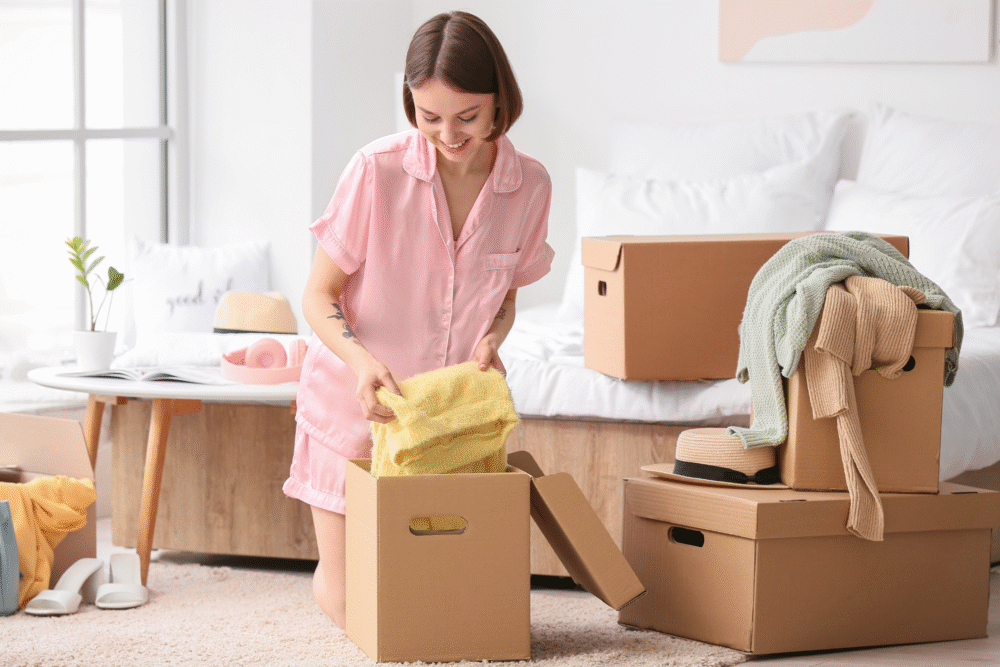
It’s easy to hold onto old yearbooks, trophies, or concert t-shirts because they remind you of meaningful moments. But the item isn’t the memory—it’s just a symbol. You can cherish the memory without keeping the physical thing, especially if it’s just taking up space.
Consider photographing sentimental items before letting them go, or keeping only a few meaningful pieces rather than the whole collection. By detaching your memories from your belongings, you honor the experience without letting it clutter your present. Memories live in your mind and heart—not in the back of your closet.
6. Accept that some “someday” items are just future stress.
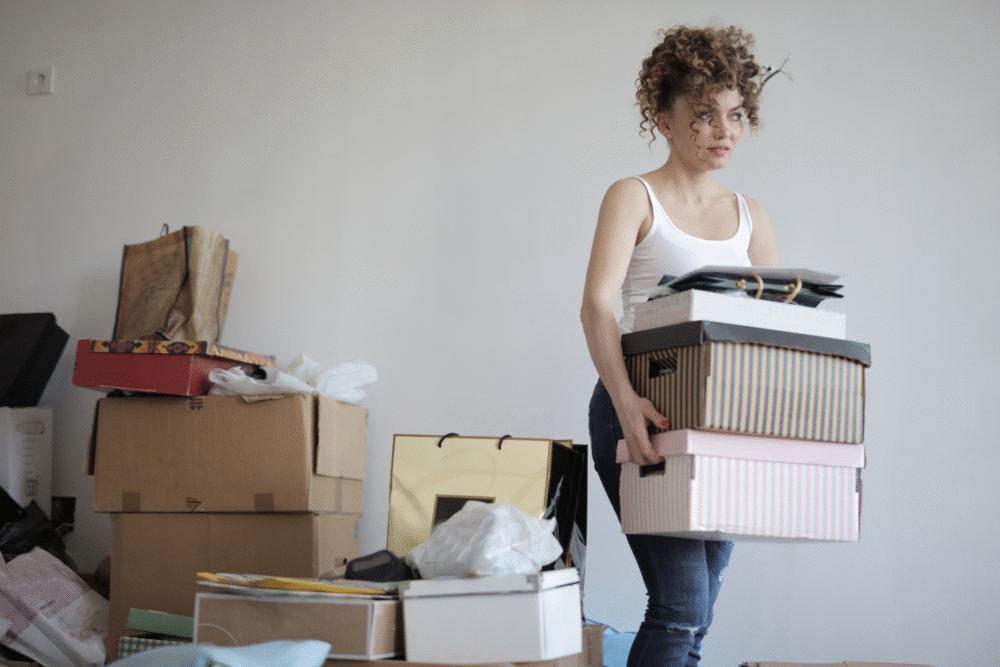
We all have those “just in case” or “maybe someday” things—craft supplies for a hobby you never started, clothes that might fit again, or gadgets collecting dust. These items often reflect hope or fear, not usefulness. But storing them doesn’t prepare you for the future—it anchors you in anxiety about it. If you haven’t used something in over a year, ask yourself why.
Holding onto it might be creating more guilt than readiness. Letting go clears the path for who you are now—not who you might be one day. You deserve to live in the present, not a storage unit for potential.
7. Realize that visual clutter leads to mental fatigue.
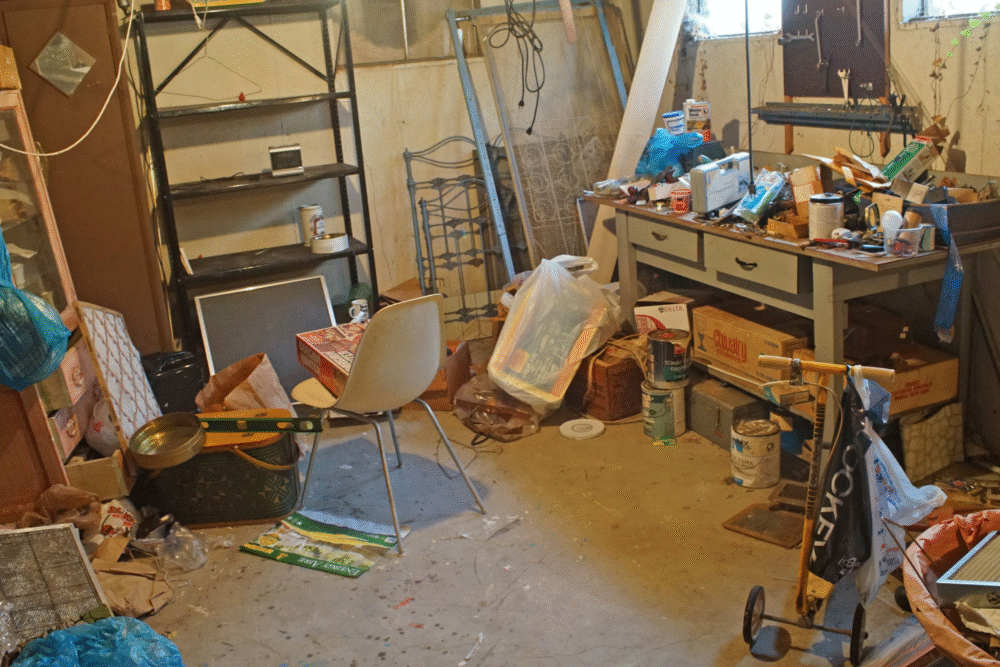
Your brain is constantly taking in your environment. When every surface is crowded or chaotic, your mind works harder to process it all—even if you’re not consciously aware. That’s why cluttered spaces feel exhausting. It’s not about being tidy for appearances—it’s about creating visual calm.
Clean lines and open spaces give your brain a break, allowing you to focus, rest, and think clearly. You don’t need to be a minimalist, but reducing what’s in your visual field can lift an invisible mental burden you’ve been carrying every day.
8. Question whether your stuff is supporting your lifestyle—or just filling space.
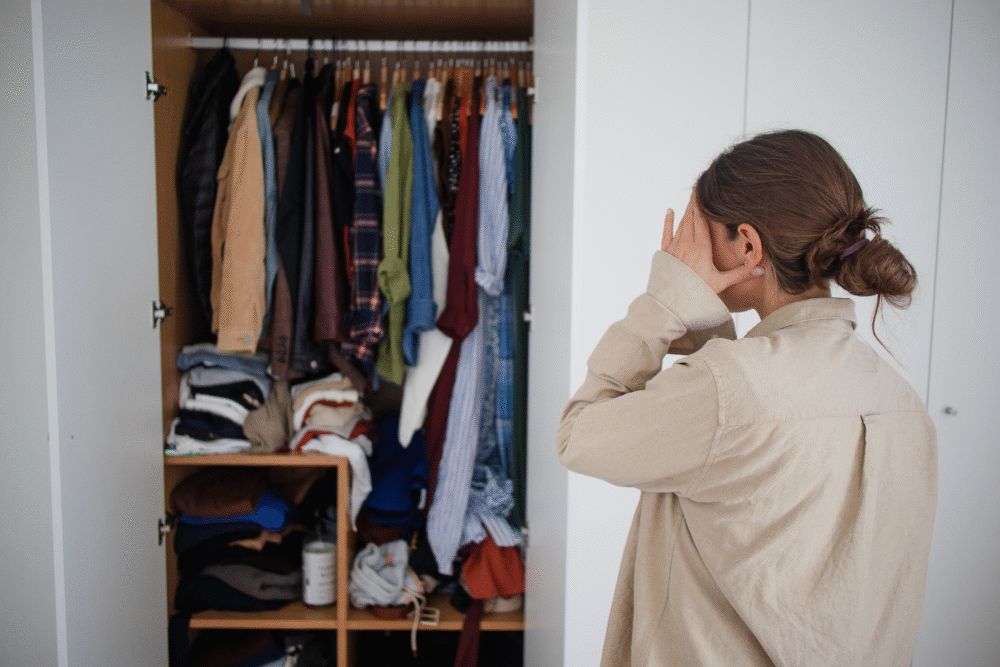
We often accumulate things with good intentions: fitness gear, cookbooks, storage bins. But are they actually serving your life—or just symbolizing who you wish you were? Your environment should reflect how you live, not who you think you should be.
If your treadmill is a coat rack, or your shelves are filled with unread books, it may be time to reassess. Letting go of unused items doesn’t mean you’ve failed—it means you’re being honest about what adds value. Freeing yourself from these false expectations makes room for authenticity and reduces the low-grade stress of unmet goals.
9. Know that maintaining stuff takes more energy than you think.
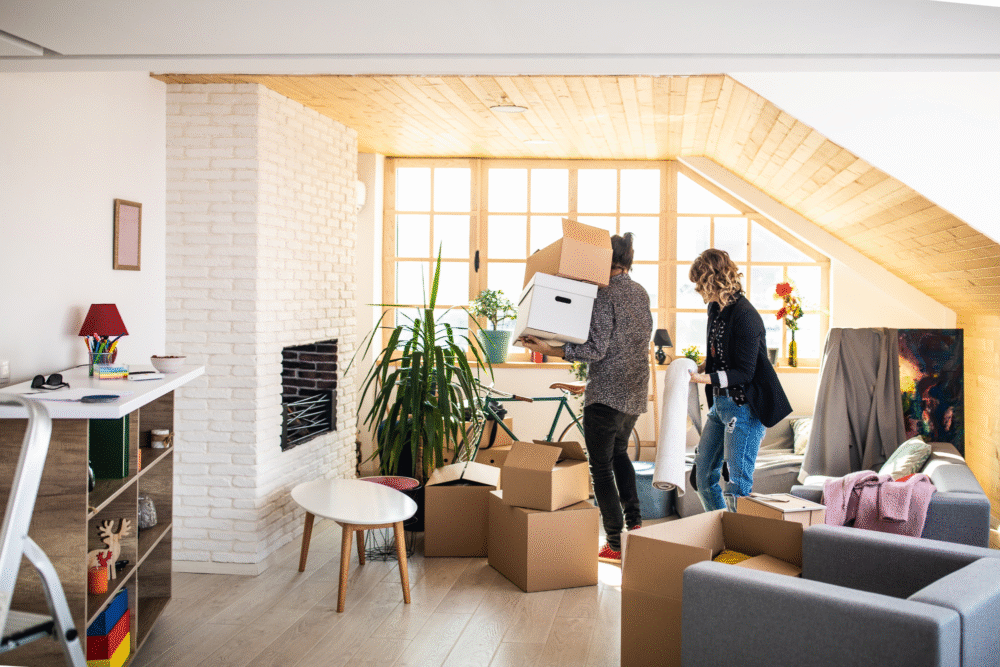
Everything you own requires some level of attention—cleaning, organizing, fixing, storing, or simply moving around. The more you have, the more mental energy is spent keeping track of it all. That’s why decluttering often feels like a breath of fresh air—you’re not just removing objects, you’re removing responsibilities.
Owning less means less maintenance, less decision fatigue, and fewer distractions. When your home functions more simply, your life does too. Reducing your belongings isn’t just about making space—it’s about reclaiming your time and energy from things that don’t truly deserve it.
10. Letting go is an act of self-care—not failure.
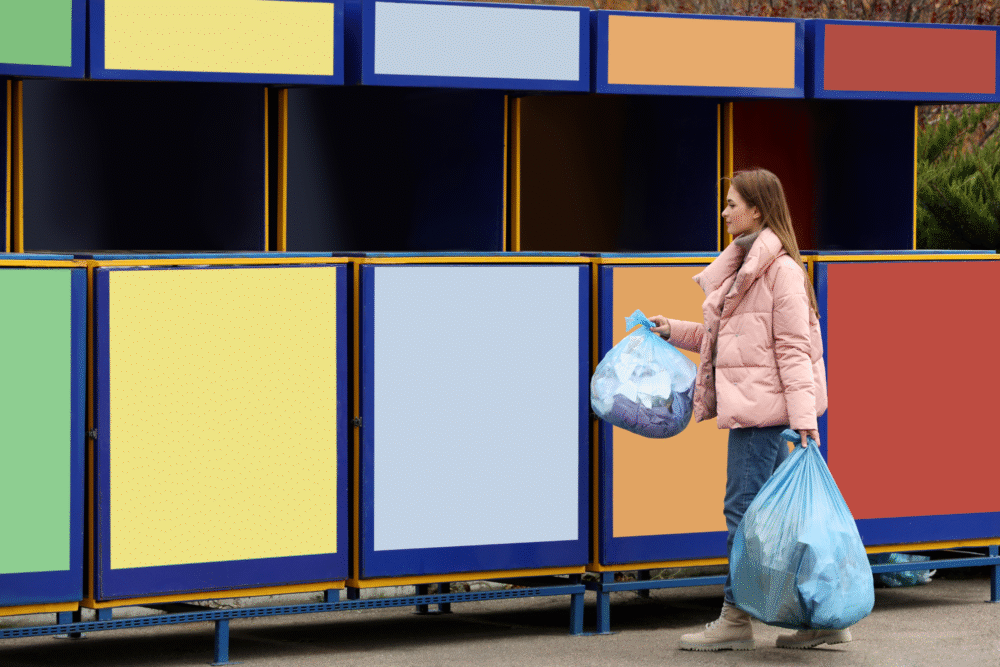
It’s easy to see decluttering as giving up or losing something. But in truth, letting go of excess is a compassionate act toward yourself. You’re choosing clarity over chaos, peace over pressure, and space over stress. It’s a statement that your well-being matters more than what you own.
When you shift your relationship with stuff from attachment to intention, you’ll begin to notice how much lighter, freer, and more in control you feel. Self-care isn’t just bubble baths and candles—it’s creating a home that nurtures your mental health. And sometimes, that starts with simply letting go.
